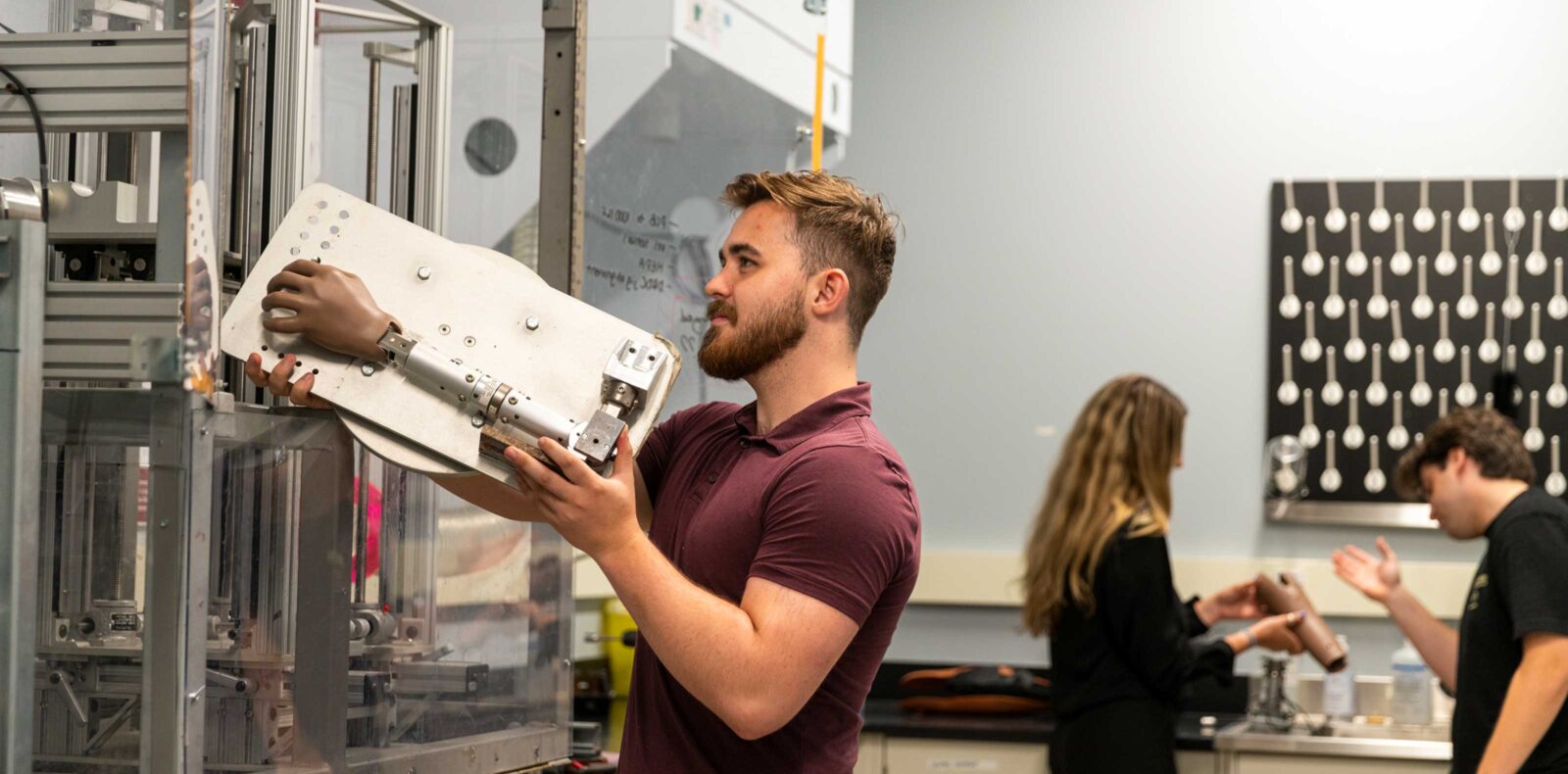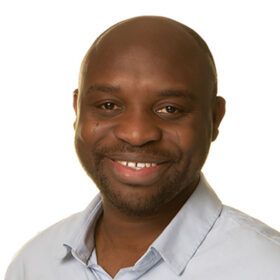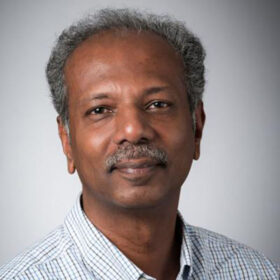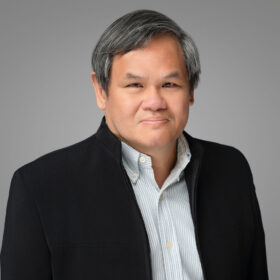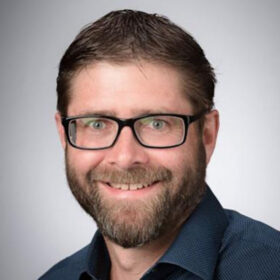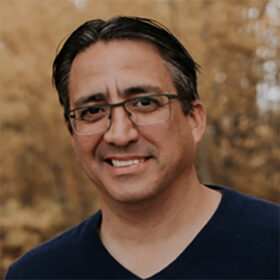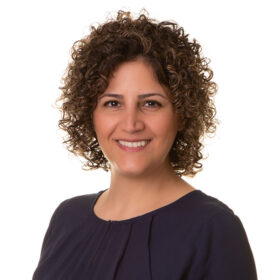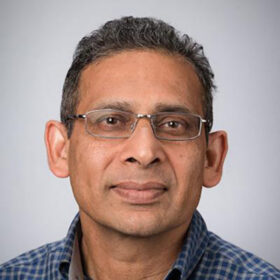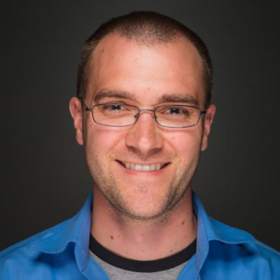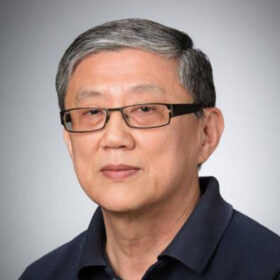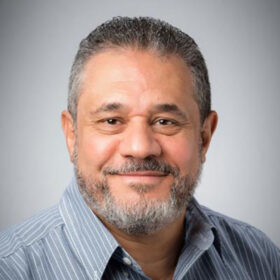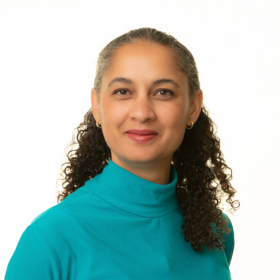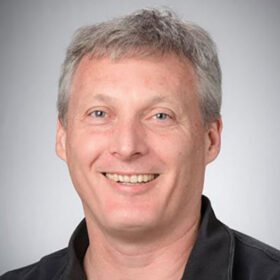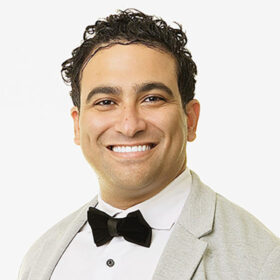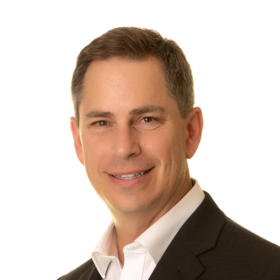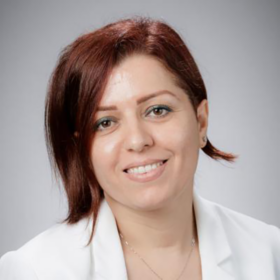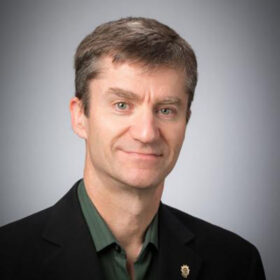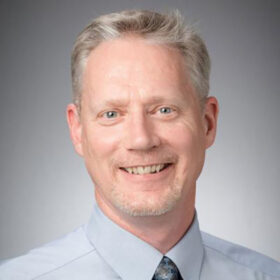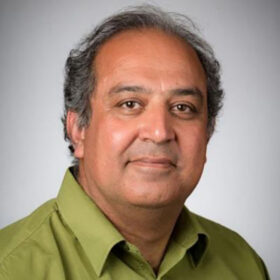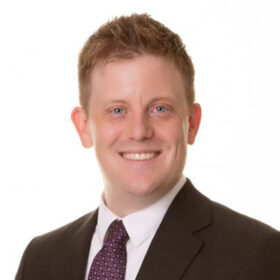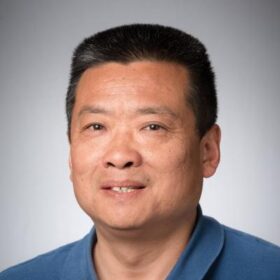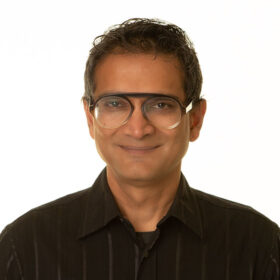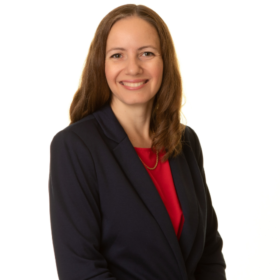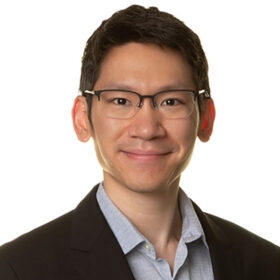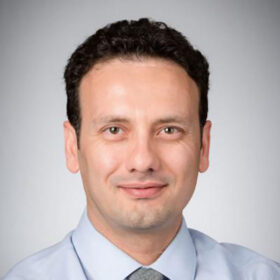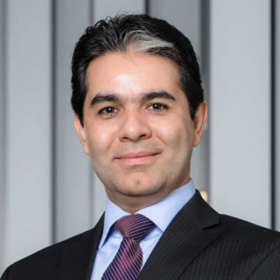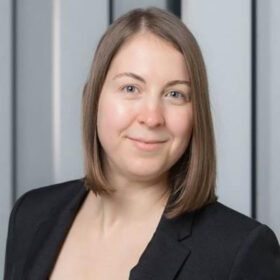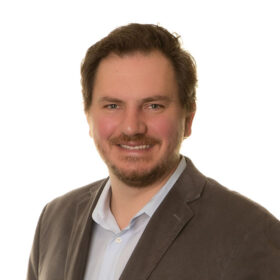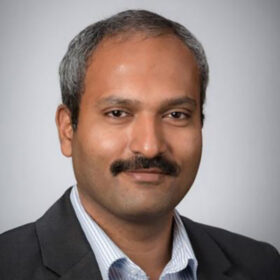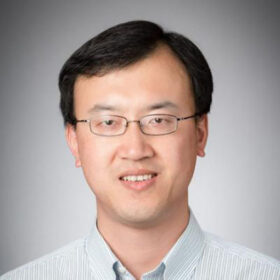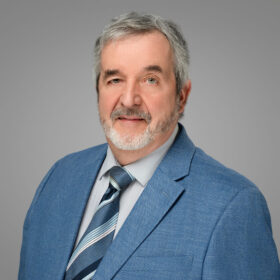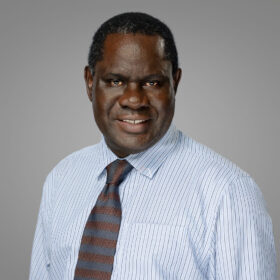-
Static and dynamic characteristics of instruments, statistical analysis of measurement errors, variable conversion elements and signal amplification. Metrology, measurement of strain and force, pressure, flow, temperature and power.
Two lectures, one lab (three hours every other week)
Pre-requisite: Registration in Level II of any Mechanical Engineering program
Anti-requisite: MECHENG 2BA3
TERM 2 -
3 unit(s) Static and dynamic characteristics of instruments, statistical analysis of measurement errors, variable conversion elements and signal amplification. Metrology, measurement of strain and force, pressure, flow, temperature and power.
Two lectures, one lab (three hours every other week)
Pre-requisite: Registration in Level II of any Mechatronics Engineering program
Anti-requisite: MECHENG 2B03
TERM 2 -
Design/Build/Test projects involving synthesis, modelling, and analysis, including technical drawings and CAD.
Two lectures, one lab (two hours)
Pre-requisite: Registration in Level II of any Mechanical Engineering program
TERM 1 -
Design synthesis, fundamental principles of standard design elements, mechanical and fluid power elements, component specification and optimization.
Three lectures, one tutorial
Pre-requisite: Registration in Level II of any Mechanical Engineering program
Anti-requisite: MECHENG 2DA3
TERM 1 -
Design synthesis, fundamental principles of standard design elements, mechanical and fluid power elements, component specification and optimization.
Three lectures, one tutorial
Pre-requisite: Registration in Level III of any Mechatronics Engineering program
Anti-requisite: MECHENG 2D03
TERM 2 -
Principles of statics as applied to deformable solid bodies. Stress and strain, elastic behaviour of simple members under axial force, bending and torsion. Principle stresses; statical indeterminacy.
Three lectures, plus one unit comprising tutorials or lectures devoted to applications at the discretion of the instructor
Pre-requisite: PHYSICS 1D03 and registration in Level II of any Mechanical Engineering program
Anti-requisite(s): CIVENG 2P04 , ENGINEER 2P04, ENGPHYS 2P04
TERM 1 -
Kinematics and dynamics of particles and rigid bodies. Analysis of planar mechanisms. Displacement, velocity and acceleration analysis methods. Motion with respect to a rotating frame reference. Work, energy and momentum principles.
Three lectures, plus one unit comprising of tutorials or lectures devoted to applications at the discretion of the instructor
Pre-requisite: Registration in Level II of any Mechanical Engineering
Anti-requisite(s): CIVENG 2A03, 2Q04, ENGINEER 2Q04, ENGPHYS 2CD4 MECH ENG 2QA4, 2QR4
TERM 1 -
Introduction to the principles of thermodynamics, and applications in engineering. Basic concepts: energy systems, properties of pure substances, entropy. Laws of thermodynamics, power and refrigeration cycles.
Three lectures, one tutorial (two hours)
Prerequisite: Registration in Level II of any Mechanical Engineering program
Anti-requisite(s): ENGINEER 2H03, ENGPHYS 2NE3
TERM 2 -
Singularity functions, generalized Hooke’s law; shear stress, shear flow in beams; shear centre. Biaxial and unsymmetrical bending, analysis of indeterminate beams and frames using energy methods, impact loads. Buckling of compression members. Introduction to yield criteria.
Three lectures, one tutorial
Prerequisite(s): ENGINEER 2P04 or MECHENG 2P04 and registration in any Mechanical Engineering program
Antirequisite(s): CIVENG 2C04
TERM 2
Also offered Spring/Summer 2026 -
-
A general introduction, encompassing the wide field of activities from iron and steel making through casting, rolling, forging, to cold forming, metal cutting, welding, bonding, electrical machining, surface treatment, mechanical handling, assembly, cleaning, packaging.
Prerequisite(s): Registration in any Mechanical Engineering, Chemical Engineering or Materials Science and Engineering program, or, registration in Level III or IV of the Manufacturing Engineering Technology Co-op (B.Tech.) program
Antirequisite(s): MANTECH 3MF3
TERM 1 -
3D stress transformation, curved beams, thick walled pressure vessels, analysis and design of interference fits, rotating disks and rings, thermal stresses, eccentric column buckling, contact stresses, shaft design and analysis, fatigue design and analysis, bolted and welded joints, machine elements.
Three lectures, one tutorial; first term
Prerequisite(s): MECHENG 2Q04 or 2QA4, and MECHENG 3A03
Antirequisite(s): MECHENG 3E04, 3E05
TERM 1 -
An introductory course in numerical analysis covering such topics as numerical differentiation, integration, curve-fitting and the solution of differential equations and systems of linear equations and non-linear equations.
Four lectures
Prerequisite(s): Registration in any Mechanical Engineering program
Antirequisite(s): CIVENG 2E03, COMPENG 3SK3
TERM 2
Also offered Spring/Summer 2026 -
-
Laboratory exercises in fluid mechanics, thermodynamics, solid mechanics, and machining processes.
One lab (three hours)
Pre-requisite: Registration in any Mechanical Engineering program
Anti-requisite: MECHENG 3M02
TERM 1 & TERM 2 -
Fluid properties and statics, conservation laws, applications of the continuity, momentum and energy equations, dimensional analysis and similarity, boundary layer flow, internal and external flows.
Three lectures, one tutorial (two hours)
Prerequisite(s): Both MATH 2Z03 and MATH 2ZZ3; and registration in any Mechanical Engineering program
Antirequisite(s): CIVENG 2O04, CHEMENG 2O04, ENGPHYS 3O04
TERM 1 -
Application of the laws of conduction, convection and radiation to problems in heat transfer. Steady and transient conduction in solids. Laminar and turbulent convection. Radiation heat transfer processes. Boiling and condensation heat transfer.
Three lectures, one tutorial
Pre-requisite(s): MATH 2Z03 and MATH 3I03; and MECHENG 2W04 or ENGPHYS 2NE3; and MECHENG 3O04
TERM 2
Also offered Spring/Summer 2026 -
Forces and moments associated with flow around airfoils and bodies. Finite wings. Potential flow and introduction to panel methods. Thin airfoil theory and symmetric and cambered airfoils. Introduction to aircraft stability and aeroelasticity.
Three lectures
Pre-requisite(s): MECHENG 3O04, CHEMENG 2O04, 3O04, or ENGPHYS 3O04; and MECHENG 4S03
TERM 2 -
This course covers the principles of modern Artificial Intelligence (AI) in a practical, hands-on way. Students will build practical, real-world AI-powered applications across a diverse range of sectors, including autonomous vehicles, business analytics, energy systems, financial technologies, and healthcare. Concepts such as Generative AI (GenAI), Natural Language Processing (NLP), Deep Learning (DL), recommendation engines, and computer vision will be covered.
Cross-listed: MECHENG 4AI3 / MECHENG 6AI3
Prerequisite(s): Registration in Level IV or above of any Engineering program
Antirequisite(s): COMPSCI 4AL3, SFWRENG 4AL3 -
Case studies using modern product development methods, value engineering, product specification, rapid product development, lean design and continuous improvement. Product liability and robust design.
Three lectures, one tutorial
Pre-requisite(s): Registration in Level IV or above of any Mechanical Engineering or Mechatronics Engineering program
TERM 1 -
Application of mechanical engineering principles to biomechanics problems including cellular biomechanics, hemodynamics, circulatory system, respiratory system, muscles and movement and skeletal biomechanics.
Three lectures, one tutorial
Cross-listed: IBEHS 4B03 / MECHENG 4BB3 / MECHENG 6BB3 / BIOMED 6B03
Pre-requisite(s): Registration in Level IV or above of any Engineering program
TERM 1 -
The objective is to learn blood flow mechanics through the circulatory system and its subsystems. The course examines mechanics of circulation, mechanobiology and biomechanics of different components of circulatory system, in-vivo and in-vitro techniques and their medical applications.
Three lectures, one tutorial
Prerequisite(s): Registration in Level IV or above of any Engineering program or Integrated Biomedical Engineering and Health Sciences (IBEHS) program
TERM 2 -
-
Introduction to experimental and computational biomechanics including biomechanical testing concepts and application of finite element methods in simulations of biomechanical structures/systems.
Three lectures
Crosslisted: MECHENG 4CC3 / MECHENG 6CC3 / IBEHS 4XC3
Prerequisite(s): Registration in Level IV or above of any Engineering program.
TERM 2 -
Fundamentals of metal removing processes, including mechanics and tribological aspects of material removal. Application of theory to the practice of machining processes such as turning, milling, drilling and grinding.
Three lectures
Pre-requisite(s): MECHENG 3C03 and registration in any Level IV or above of any Mechanical Engineering program
TERM 2 -
Fundamentals of surface engineering in manufacturing including surface properties; surface characterization: different techniques and instruments; surface engineering techniques (conversion and deposition methods); thin coatings used in manufacturing: deposition methods, properties, selection, evaluation and applications.
Three lectures
Pre-requisite(s): Registration in Level IV or above of any Mechanical Engineering program or permission of the Department
TERM 1 (Not offered in 2025-2026) -
-
An overview of energy storage from the nanosecond scale to the seasonal scale. Concepts such as energy density, specific energy, thermodynamic losses, and cycle efficiency. Topics will include mechanical, thermal, electrochemical, and chemical energy storage.
Three lectures
Cross-listed: MECHENG 4ES3 / MECHENG 6ES3 (ME 6ES3 NOT OFFERED IN 2025 – 2026)
Pre-requisite(s): one of MECHENG 2W04, ENGPHYS 2CD4, CHEMENG 3D04 or MATLS 2B03; and one of MECHENG 3O04, ENGPHYS 3O04, CIVENG 2O04 or CHEMENG 2O04
TERM 2 -
The theory and practice of experimental analysis of fluid mechanics problems. Modern and traditional experimental facilities and techniques for thermo-fluids sensing and visualization, planning of laboratory experiments, data acquisition, analysis of experimental results and uncertainty estimation.
Three lectures, one lab (one hour)
Pre-requisite(s): MECHENG 3O04 or CIVENG 2O04
TERM 2 -
Integration of mechanical engineering with electronics and computer control. Sensors, actuators (including pneumatic and hydraulic), modelling using building block and state space methods, model-based control, programming of PLCs with practical demonstrations.
Three lectures
Pre-requisite(s): IBEHS 4A03, MECHENG 4R03, MECHTRON 3DX4, ELECENG 3CL4 or SFWRENG 3DX4 and registration in any Mechanical Engineering, Mechatronics Engineering or Electrical Engineering program
TERM 2 -
Acoustic quantities; noise measurements and analysis; noise standards; sound generation, propagation, absorption, transmission; acoustic materials; noise control techniques; case studies.
Three lectures
Pre-requisite(s): Registration in Level IV or above of any Mechanical Engineering program or permission of the Department
TERM 1 -
Computational Methods for Fluid Mechanics and Heat Transfer covering: concepts of modelling and numerical analysis, governing equations of thermo-fluid problems, finite-difference discretization methods. Use of commercial computational software for solving thermo-fluid problems.
Three lectures; One tutorial (one and one-half hours)
Pre-requisite(s): MECHENG 3O04 or 4S03, and MECHENG 3F04 or ENGPHYS 2CE4, or permission of the Department
TERM 2 -
Fundamental theory and practical applications of robotic manipulators and mobile robots. Equations of motion, robot dynamics and statics, motion planning, introduction to machine vision, basics of robot programming.
Three lectures
Crosslisted: MECHENG 4K03 / MECHENG 6K03 (ME 6K03 NOT OFFERED IN 2025 – 2026)
Prerequisite(s): ENGINEER 2Q04 or MECHENG 2Q04 or 2QA4 or ENGPHYS 2CD4 and registration in Level IV or above of any Mechanical Engineering or Mechatronics Engineering or Engineering Physics program
TERM 1 -
A major mechanical project including quantitative design analysis, optimization, validation and/or testing to be completed under the supervision or co-supervision of a faculty member holding an appointment in the Department of Mechanical Engineering.
Lectures, one capstone project
Prerequisite(s): MECHENG 3E03; MECHENG 3R03; and registration in Level IV Mechanical Engineering; or Level V Mechanical Engineering and Management or Mechanical Engineering and Society
TERM 1 & TERM 2 -
Introduction to nanotechnology, nanomaterials, nanotechnology in living systems, nanotechnology in biomedical devices, nano-biomaterials, characterization of biomaterials, nano-coatings, nano-biofunctional interfaces, biosensing and diagnostics, organs-on-chips.
Three lectures
Pre-requisite(s): Registration in Level IV or above of Engineering or Integrated Biomedical Engineering and Health Sciences (IBEHS) program or permission of Department
TERM 1 -
Assessment of current and future energy systems, covering resources, extraction, conversion with emphasis on meeting regional and global energy needs in a sustainable manner. Different renewable and conventional energy technologies and their attributes. Evaluation and analysis of energy technology systems in the context of political, social, economic and environmental goals.
Four lectures
Pre-requisite(s): MECHENG 2W04, 3O04; or ENGPHYS 2NE3, 3O04; or permission of the Department
TERM 2 (Not offered in 2025-2026) -
Laboratory exercises in vibration analysis, machine structures, controls, heat transfer, gas dynamics, fluid mechanics and thermodynamics.
One lab (three hours)
Pre-requisite(s): ENGINEER 2Q04 or MECHENG 2Q04 or 2QA4 or ENGPHYS 2CD4; MECHENG 3M03 A/B and registration in any Mechanical Engineering or Mechatronics program
TERM 1 & TERM 2 -
Transient and steady state vibration of single- and multi-degree of freedom systems. Free and forced vibrations of single and multiple degree-of-freedom mechanical systems, transient response, damping and vibration isolation.
Three lectures
Cross-listed: MECHENG 4Q03 / MECHENG 6Q03
Pre-requisite(s): ENGINEER 2Q04 or MECHENG 2Q04 or 2QA4 and registration in any Mechanical Engineering or Mechatronics program
TERM 1 -
Fundamentals of linear, continuous control systems. Control system performance in both time and frequency domains. Design and analysis of controllers.
Three lectures
Pre-requisite(s): Registration in Level III Mechanical Engineering; or Level IV Mechanical Engineering and Management or Mechanical Engineering and Society
Anti-requisite(s): ELECENG 3TP3, ELECENG 3TP4, IBEHS 4A03
TERM 2 -
Introduction to internal and external laminar and turbulent incompressible flows. Topics include turbulent boundary layers, aerodynamics and convective heat transfer.
Three lectures
Pre-requisite(s): MECHENG 3O04, CHEMENG 2O04, 3O04, or ENGPHYS 3O04
TERM 1 -
This course will teach the fundamentals of smart systems which incorporate elements of sensing, actuation, and control in order to interact with the environment and make decisions in a predictive and intelligent manner. Students will learn how to mathematically model systems, how to program and implement Kalman filters, how to tune and code PID controllers, how to collect and process sensor data, and how to apply machine learning strategies for system optimization.
Prerequisite(s): MECHENG 4R03 or IBEHS 4A03
TERM 1 -
Theory of the finite element method, element derivation, solution procedures. Applications to static and dynamic mechanical systems using a finite element package.
Three lectures, one tutorial
Cross-listed: MECHENG 4T03 / MECHENG 6T03
Pre-requisite: Registration in Level IV or above of any Mechanical Engineering program
Anti-requisite: MECHENG 4TR3
TERM 1 or Term 2 -
Compressible flows: Fanno and Rayleigh flows, normal and oblique shocks. Turbomachines: axial flow gas and wind turbines, axial flow compressors and fans.
Three lectures
Cross-listed: MECHENG 4U03 / MECHENG 6U03
Pre-requisite(s): MECHENG 2W04, MECHENG 3O04; CHEMENG 2O04, 3D04; or ENGPHYS 2NE3, 3O04
TERM 1 -
Design, operation and application characteristics of equipment commonly used in thermal systems. Modelling performance characteristics of piping systems, pumps, compressors, fans, heat exchangers, boilers and cooling towers. System simulation and optimization. Selection criteria of thermal equipment. Design optimization and system performance evaluation.
Three lectures, One Tutorial
Pre-requisite(s): MECHENG 2W04, or ENGPHYS 2NE3; MECHENG 3O04 and MECHENG 3R03
TERM 1 -
Re-examination of laws of thermodynamics, multicomponent vapour systems, psychrometry, air conditioning, mechanical vapour compression refrigeration, absorption refrigeration, heating and cooling load calculations, air quality and human thermal comfort.
Three lectures
Pre-requisite(s): MECHENG 2W04 or ENGPHYS 2NE3, and registration in Level IV or above of any Mechanical Engineering program or Engineering Physics program
TERM 2 -
Individual research project over two terms to be arranged by mutual consent of a faculty supervisor and the student with approval of the course instructor.
**Interested students must initiate discussion with a faculty member pertaining to a research project before approval can be granted. A list of faculty members, their contact information, and their research clusters can be found here: https://www.eng.mcmaster.ca/faculty-staff/faculty-directory/?filter-search=&filter-research-cluster=&filter-department=65#faculty-listing__filter.
Prerequisite(s): A minimum GPA of 9.5, consent of a supervisor, and registration in Level IV Mechanical Engineering, Mechanical Engineering Co-op (B.Eng.) or Level V Mechanical Engineering and Management, Mechanical Engineering and Management Co-op (B.Eng.Mgt.) or Mechanical Engineering and Society, Mechanical Engineering and Society Co-op (B.Eng.Society).
Antirequisite(s): IBEHS 3I06 A/B
TERM 1 & TERM 2 -
This course focuses on internal combustion engines (ICE), including operations, thermodynamics, combustion, and characteristics of gasoline and diesel engines, as well hybrid powertrains.
Three lectures
Pre-requisite(s): Registration in Level IV or above of any Mechanical Engineering program or Engineering Physics program
TERM 1 -
Solid modelling theory, part creation, assemblies and rigid bodies, mechanism simulation, B-Splines, data exchange, CNC machining and inspection. Major project using computer laboratory facilities.
Three lectures, one lab (one hour)
Cross-listed: MECHENG 4Z03 / MECHENG 6Z03 (MECHENG 6Z03 not offered in 2025-2026)
Pre-requisite(s): Registration in Level IV or above of any Mechanical Engineering or Mechatronics Engineering program
Anti-requisite: MECHENG 4ZR3
TERM 2 -
This course covers the principles of modern Artificial Intelligence (AI) in a practical, hands-on way. Students will build practical, real-world AI-powered applications across a diverse range of sectors, including autonomous vehicles, business analytics, energy systems, financial technologies, and healthcare. Concepts such as Generative AI (GenAI), Natural Language Processing (NLP), Deep Learning (DL), recommendation engines, and computer vision will be covered.
Cross-listed: MECHENG 4AI3 / MECHENG 6AI3
Prerequisite(s): Registration in Level IV or above of any Engineering program
Antirequisite(s): COMPSCI 4AL3, SFWRENG 4AL3 -
Application of mechanical engineering principles to biomechanics problems including cellular biomechanics, hemodynamics, circulatory system, respiratory system, muscles and movement and skeletal biomechanics.
Three lectures, one tutorial
Cross-listed: IBEHS 4B03 / MECHENG 4BB3 / MECHENG 6BB3 / BIOMED 6B03
Pre-requisite(s): Registration in Level IV or above of any Engineering program
TERM 1 -
Topics include building science theory, heat, air and moisture transfer, building envelope, roofing and green roofs, sustainability considerations, assessment, durability, performance, LEED design, codes and regulations.
Cross-listed: SEP 6BC3 / MECHENG 6BC3
TERM 2 -
Introduction to experimental and computational biomechanics including biomechanical testing concepts and application of finite element methods in simulations of biomechanical structures/systems.
Three lectures
Crosslisted: MECHENG 4CC3 / MECHENG 6CC3 / IBEHS 4XC3
Prerequisite(s): Registration in Level IV or above of any Engineering program.
TERM 2 -
An overview of energy storage from the nanosecond scale to the seasonal scale. Concepts such as energy density, specific energy, thermodynamic losses, and cycle efficiency. Topics will include mechanical, thermal, electrochemical, and chemical energy storage.
Three lectures
Cross-listed: MECHENG 4ES3 / MECHENG 6ES3 (ME 6ES3 NOT OFFERED IN 2025 – 2026)
Pre-requisite(s): one of MECHENG 2W04, ENGPHYS 2CD4, CHEMENG 3D04 or MATLS 2B03; and one of MECHENG 3O04, ENGPHYS 3O04, CIVENG 2O04 or CHEMENG 2O04
TERM 2 -
Fundamental theory and practical applications of robotic manipulators and mobile robots. Equations of motion, robot dynamics and statics, motion planning, introduction to machine vision, basics of robot programming.
Three lectures
Crosslisted: MECHENG 4K03 / MECHENG 6K03 (ME 6K03 NOT OFFERED IN 2025 – 2026)
Prerequisite(s): ENGINEER 2Q04 or MECHENG 2Q04 or 2QA4 or ENGPHYS 2CD4 and registration in Level IV or above of any Mechanical Engineering or Mechatronics Engineering or Engineering Physics program
TERM 1 -
Transient and steady state vibration of single- and multi-degree of freedom systems. Free and forced vibrations of single and multiple degree-of-freedom mechanical systems, transient response, damping and vibration isolation.
Three lectures
Cross-listed: MECHENG 4Q03 / MECHENG 6Q03
Pre-requisite(s): ENGINEER 2Q04 or MECHENG 2Q04 or 2QA4 and registration in any Mechanical Engineering or Mechatronics program
TERM 1 -
Theory of the finite element method, element derivation, solution procedures. Applications to static and dynamic mechanical systems using a finite element package.
Three lectures, one tutorial
Cross-listed: MECHENG 4T03 / MECHENG 6T03
Pre-requisite: Registration in Level IV or above of any Mechanical Engineering program
Anti-requisite: MECHENG 4TR3
TERM 1 or Term 2 -
Compressible flows: Fanno and Rayleigh flows, normal and oblique shocks. Turbomachines: axial flow gas and wind turbines, axial flow compressors and fans.
Three lectures
Cross-listed: MECHENG 4U03 / MECHENG 6U03
Pre-requisite(s): MECHENG 2W04, MECHENG 3O04; CHEMENG 2O04, 3D04; or ENGPHYS 2NE3, 3O04
TERM 1 -
3 unit(s) Sustainable development, materials cycles, methods for measuring environmental impact, life cycle analysis, waste treatment and recycling technologies.
Cross-listed: MATLS 6I03 / SEP 6I03 / MECHENG 6XI3
TERM 1 -
-
Solid modelling theory, part creation, assemblies and rigid bodies, mechanism simulation, B-Splines, data exchange, CNC machining and inspection. Major project using computer laboratory facilities.
Three lectures, one lab (one hour)
Cross-listed: MECHENG 4Z03 / MECHENG 6Z03 (MECHENG 6Z03 not offered in 2025-2026)
Pre-requisite(s): Registration in Level IV or above of any Mechanical Engineering or Mechatronics Engineering program
Anti-requisite: MECHENG 4ZR3
TERM 2 -
Solve nonlinear quasi-static and dynamic problems in solid mechanics with finite element method. Introduce the kinematics of large deformations and metal plasticity theories. Describe explicit and implicit implementations of constitutive models into finite element software. Cover a range of engineering applications, including assessment of damage and failure, prediction of deformation localization and necking.
TERM 2 -
Steady and transient conduction stressing formulation and approximate solution techniques. Convection heat transfer including compressible and incompressible flow. Radiation heat transfer including gray body radiation and radiation from gases and vapours.
TERM 1 -
Development of conservation laws for two phase flow systems, two phase flow modelling, pressure drop and void fraction in piping systems, pool and convective boiling transfer, critical heat flux in pool and flow boiling, post dryout heat transfer, critical two phase flow and flow instabilities.
TERM 1 -
The course introduces the phenomenological features in turbulent flows and the methods used to analyze these flows. This will include developing the Reynolds average equations, investigating the vortex dynamics in these flows, applying the governing equations to different flows and other topics. The course will cover material related to both wall-bounded and freeshear flows.
TERM 2 -
Definitions and test of accuracy.Metrology using laser interferometer.Thermal deformations. Automation, numerical control: command generation, digital positional servos. Dynamics of machine tool structures, stability against chatter. Selection, specification, utilization, maintenance.
TERM 2 -
This course presents an overview of engineering design concepts inspired from living systems and introduces selected and recent bioinspired technologies with a particular focus on technologies in the field of biomedical sciences such as diagnostics, therapeutics and drug discovery. The main topics will include: Introduction to biomimetics and bioinspired engineering, Bioinspired design, Bioinspired materials, Self repellent coatings, Adhesive coatings, Nanobioengineering, Biofunctional interfaces, Drug delivery systems, Biohybrid systems, Bioinspired tissue engineering, Biosensing, LabonChip devices, Microfluidics, OrgansonChips, In vitro disease models.
Cross-listed: MECHENG 712 / CHEMENG 712 / BIOMED713
TERM 2 -
-
Fundamentals of Solidification, Review of Solidification processes, near net shape solidification, molten metal handling and treatment, cast part quality.
Cross-listed: MECHENG 714 / MATLS 715
TERM 2 -
3 unit(s) Topics include mechanics of biological tissues, injury/failure mechanisms (particularly musculoskeletal tissues and brain injury), and theory behind methods and devices for prevention of injuries with particular focus on motor vehicle collisions and sport-related injuries.
Cross-listed: MECHENG 715 / BIOMED 715
TERM 2 -
3 unit(s)
Concentrates on recognizing and solving convex optimization problems that arise in engineering. Convex sets, functions, and optimization problems. Basics of convex analysis. Least-squares, linear and quadratic programs, semi-definite programming, minimax, extremal volume, and other problems. Localization methods. Optimality conditions, duality theory, theorems of alternative, and applications. Interior-point methods. Applications to signal processing, control, circuit design, computational geometry, statistics, and mechanical engineering. The prerequisites are – a good knowledge of linear algebra and willingness to program in Matlab; exposure to numerical computing, optimization, and application fields helpful but not required; the engineering applications will be kept basic and simple.
Cross-listed: ECE 710 / CSE 710 / MECHENG 716
TERM 2 -
3 unit(s) Current techniques and technologies used in orthopaedic biomechanics and their applications and limitations, including joint replacement design and failure, analysis of human locomotion, numerical methods in biomechanics, computer assisted surgery, and design of assistive devices.
Cross-listed: MECHENG 717 / BIOMED 717
TERM 2 -
-
This course focuses on the conversion of biomass and residues into high value products, fuels, and chemicals. It will provide students with a thorough understanding of biomass feedstocks, availability, and attributes for bioproduct development. The course will cover the design, analysis and operation of biomass conversion systems and the economics of the process.
TERM 2 -
3 unit(s)
A course on the analysis, simulation and design of power converter systems. Main topics include: high-power multi-pulse rectifiers, multilevel voltage and current source converters, pulse width modulation, harmonic reduction techniques, modeling and simulation techniques, and industrial applications. Important concepts are illustrated with design projects using Matlab/Simulink.
Cross-listed: ECE 720 / MECHENG 720
TERM 1 -
Cross-listed: ECE 724 / MECHENG 721
TERM 2 -
The study of energy storage in chemical form with an emphasis on energy conversion non–hydrocarbon energy carriers. Topics include metal fuels, hydrogen production, ammonia, liquid organic hydrogen carriers, water oxidation, and combustion.
TERM 1 -
Classification of problems in flow-induced vibrations (FIV), physical modeling and mathematical modeling of problems involving fluid-structure interaction. Examples of applications to compliant structures include: smoke stacks, marine risers, aircraft wings, power transmission lines, cable-tensioned bridges, and systems exploiting FIV for hydrokinetic energy extraction.
TERM 1 -
Introduction to transmission electron microscopy: electron sources, optics, TEM, Scanning-TEM, electronsolid interactions, diffraction, imaging, and spectroscopy. Course will include a practical component with demonstration labs.
Cross-listed: MATLS 725 / MECHENG 725 / ENGPHYS 725
TERM 2 -
3 unit(s) An introduction to the theory, physics and operating principles of Scanning electron microscopy (SEM), Focused Ion Beam (FIB) microscopy and attendant diffraction and spectroscopy techniques. The course will have laboratory component allowing students to students to establish core competence in hands-on use of these microscopes.
Cross-listed: MATLS 724 / ENG PHYS 724 / CHEM ENG 724 / MECH ENG 726
TERM 1 -
This course is designed to provide a fundamental understanding of tribology and surface engineering in manufacturing. Topics include an introduction to surface engineering and surface properties; surface evaluations including investigation instruments and material characterization techniques; surface engineering techniques (surface treatments and coatings); surface engineering considerations in manufacturing applications including machining operations; selection, development, and identification of mechanical properties and material characteristics of thin coatings used in cutting tools.
TERM 2 -
Fundamentals of metal cutting: cutting process, cutting forces and temperatures, tool wear, machinability of materials, machined surface quality and integrity, optimization of cutting conditions. Applications to single edge and multiple edge operations and grinding.
TERM 2 -
This course studies the organization and control of manufacturing systems. Types of production systems, the role of inventory, capacity and production control planning, scheduling, push-, CONWIP- and JIT-systems.Use of analytic, heuristic and numerical analysis and design methods.
Cross-listed: SEP 729 / MECHENG 729
TERM 1 & TERM 2 -
Characterization techniques of organic and inorganic thin films, including x-ray and electron diffraction, electron microscopy, chemical analysis, ion beam analysis, and optical and electrical characterization methods.
Cross-listed: ENGPHYS 730 / MECHENG 730
TERM 2 -
Network models of production systems. Simulation software architecture and solution methods. Single period and multiperiod production planning models. Plant data analysis and model building (PCA, PLS). Models comprised of first principles and empirical submodels (hybrid models). Evolutionary optimization (differential evolution, genetic algorithms, particle swarm). Term project.
Cross-listed: SEP 752 / MECHENG 732 / CHEMENG 753
TERM 2 -
Yield Criteria for ductile isotropic metals. Invariants of a second order tensor.Representative stress and strain. Flow Rule (plastic stress/strain relationships). Fundamental plasticity theory leading to the establishment of the extremum principles. Application of these principles to a rigid, incompressible, non-hardening, rate-insensitive solid in a state of plane strain (upper and lower bound theorems). Slip line field analysis (a more advanced upper bound method). Theory of finite strain. Introduction to some macroscopic theories of anisotropy. Introduction to crystallographic theory of metal deformation and determination of crystallographic yield loci.
TERM 2 -
This course covers basic overview of the additive manufacturing (AM) technology, focusing on metal AM processes including powder bed fusion (PBF), and direct energy deposition (DED) processes. The course will also cover design for additive manufacturing, applications, microstructure, mechanical properties and future trends in the AM field.
Cross-listed: SEP 735 / MECHENG 735
TERM 1 & TERM 2 -
This graduate-level course provides a pathway for students to take the decisive step in leveraging leading-edge artificial intelligence technology to solve many real-world problems. This foundational course first helps students to understand the capabilities, challenges, and consequences of deep learning, then helps them gain the knowledge and skills needed to apply deep learning to any problem, finally levels up their technical career.
Cross-listed: SEP 740 / MECHENG 740
Anti-requisite(s): SEP 788 + SEP 789, MECHENG 788 + MECHENG 789
TERM 1 & TERM 2 -
This is a graduate course in mechatronics with an emphasis on actuation systems and control. The course begins by considering the industrial process that is followed for the design of large integrated systems. It then considers the necessity for a multidisciplinary approach to design and discusses the rational for mechatronics. Electrical and hydraulic actuation systems are considered, modeled and simulated. Electronic circuits, microcontrollers, real-time digital control, filtering, estimation and system identification are considered in the context of the control of actuation systems. The course heavily relies on experiential learning and includes a project.
TERM 2 -
-
Modeling of linear elastic, elastic-plastic crack and damage problems, including mathematical foundations, experimental determination of fracture toughness and multi-axial damage in engineering materials, and application of fracture mechanics concepts to suitable engineering problems.
TERM 1 -
-
Design of digital control systems with particular emphasis on mechanical engineering applications, sampling characteristics, z transforms, and z transfer functions. Root Locus in the z plane, frequency response, transient response. State space analysis, Eigen values, Eigen vectors, controllability, observability (SISO). State space design, pole assignment, state feedback, output feedback, modal control. Introduction to adaptive control, self tuning regulations, model reference adaptive systems.
TERM 2 (offered in TERM 1 for the 2025-2026 academic year) -
Introduction, Micorfabrication and micromachining. Surface and bulk micromachining, nonconventional machining. Microfluidics, Microchannels, Microsvalves, Micromixers, Micropumps, Droplet actuation, Integrated Systems.
Cross-listed: MECHENG 752 / BIOMED 752 / ENGPHYS 752
Anti-requisite(s): Introduction, Microfabrication and micromachining, Surface and bulk micromachining, non-conventional machining, Microfluidics, Microchannels, Microvalves, Micromixers, Micropumps, Droplet actuation, Integrated Systems.
TERM 2 -
Review of vectors, tensors, tensor notation, hydrostatics and stresses in fluid, and Eularian and Lagrangian coordinate systems. Develop conservation of mass, momentum, and energy equations and examine their properties. Analyze boundary layer flows, potential flows, and introduce transition to turbulence and turbulence flows.
TERM 1 -
Covers the key aspects of battery management systems in hybrid electric vehicles, plug-in hybrid electric vehicles and battery electric vehicles. Battery modeling, analysis, state-of-charge estimation, and state-of-health estimation via the application of parameter estimation, system identification, optimization, filtering, and control theory.
Cross-listed: MECHENG 754 / SEP 798
TERM 1 (offered in TERM 2 for the 2025-2026 academic year) -
The course will introduce a variety of linear and nonlinear control design techniques that are particularly useful for internal combustion engine systems. Combinations of engine system characteristics with control theory will be described through examples generated from pertinent research projects. Matlab/Simulink will be extensively used for engine control system analysis, design, and simulation studies. There will be a student self-proposed or instructor assigned term project.
TERM 1 -
This course provides an introduction to finite-volume methods for solving fluid flow and heat transfer problems. Course content includes multi-grid solvers and pressure-velocity coupling techniques. The course emphasizes an understanding of the physics and the fundamentals of fluid flow and heat transfer. A working knowledge of FORTRAN is required.
TERM 1 -
Seminar presented by graduate students and guest speakers. All full-time, in-time graduate students are required to register for this “zero credit” course in the fall and winter semesters. Course grades are either Pass or Fail (P/F). To pass the course the student must attend the Mechanical Engineering Seminar each term, and provide meaningful feedback for the presenters. Both full-time, in-time Master’s and Doctoral students are required to present at the seminar(s) before graduation, and attend professional skill building workshops in the term(s) that they present.
TERM 1 & TERM 2 -
This course will enhance the hardware prototyping capabilities of students. Students will be expected to develop basic hands-on competency in hardware prototyping and demonstrate their ability and knowledge through a lab project that contributes to their degree-required project.
Cross-listed: SEP 757 / MECHENG 759
TERM 1 & TERM 2 -
The course covers topics related to electric and hybrid electric vehicles. It begins with an introduction to the automotive industry and explains the need for electrification, and then continues with an introduction to internal combustion engines and electric machines. The course covers electrical and hybrid energy storage systems and chargers, and concentrate on the fundamentals of hybrid electric powertrains, hybrid electric vehicles, plug-in hybrid electric vehicles, all-electric vehicles, and range-extended electric vehicles.
Cross-listed: SEP 722 / MECHENG 760
TERM 1 -
-
This course covers advanced software and hardware components of industrial systems, as well as industrial networks used in Machine to Machine (M2M) and Business to Business (B2B) communication to integrate industrial components. The course also covers interoperability issues of industrial automation systems. Topics covered include legacy industrial networks such as Modbus serial and DeviceNet; Ethernet and TCP/IP; Ethernet based industrial networks such as Ethernet IP, Modbus TCP, ProfiNet, BACNet; as well as integration of process/manufacturing automation, building automation, environment management, energy management systems, and electricity automation systems using DDE, OPC, and SCADA systems. Moreover, the course covers use and integration of artificial intelligence in industrial systems.
Cross-listed: SEP 723 / MECHENG 761
TERM 1 & TERM 2 -
-
This course covers circulatory anatomy and physiology as well as several methods for modeling circulatory mechanics. Some applications of modeling circulatory mechanics in the development of medical devices are also covered. The major topics to be covered include: Introduction to anatomy and physiology of cardiovascular system; Introduction to anatomy and physiology of local circulations such as cerebral, pulmonary and renal circulations; Blood rheology; Flow, pressure and wave reflection in the circulatory system; Governing equations for solid deformation; Governing equations for fluid motion; Analytical solutions; Medical imaging technologies; Medical imaging data used for modeling; Solid mechanics models; Fluid mechanics models; Fluid-solid mechanics models; Numerical modeling of wave propagation; Lumped parameter mathematical models.
Cross-listed: MECHENG 762 / BIOMED 762 / CSE 763
TERM 2 -
The course covers key aspects of design and control of hybrid electric vehicles, plug-in hybrid electric vehicles and battery electric vehicles. The course provides a fundamental understanding of electric vehicles powertrain design, power flow management, system integration, propulsion system modelling, simulation and analysis. The course is geared towards Mechatronic systems design; starting from conceptual system-level requirements, followed by powertrain components design, system integration, and ending in verification and validation.
TERM 2 -
-
This course is based around multivariate latent variable models which assume low dimensional latent variable structures for the data. Multivariate statistical methods including Principal Component Analysis (PCA), and Partial Least Squares (PLS) are used for the efficient extraction of information from large databases typically collected by on-line process computers. These models are used for the analysis of process problems, for on-line process monitoring, and for process improvement.
Cross-listed: SEP 767 / MECHENG 767 / CHEMENG 765
TERM 1 & TERM 2 -
Complement to Manufacturing Systems 1 (SEP 729 / MECHENG 729). This course allows students to understand and practice system integration and system engineering, and apply this knowledge for the improvement, design and simulation of manufacturing systems.
Cross-listed: SEP 776 / MECHENG 776
Prerequisite(s): SEP 729 / MECHENG 729 or with permission of the program
TERM 2 -
The aim of this course is for students to develop an advanced understanding of smart systems principles and applications in engineering. The course provides a theoretical understanding of smart systems, the perception-action cycle (e.g., estimation and control theory), memory, attention, and intelligence (e.g., artificial and machine learning) in an engineering environment.
TERM 1 (offered in TERM 2 for the 2025-2026 academic year) -
This graduate course provides both breadth and depth in terms of machine learning and data mining with a good mixture of theory, practice, and real-world applications. Students will learn how to implement data preprocessing solutions and how to visualize multidimensional data effectively. This course provides students the fundamental and advanced theories to understand the operation of the popular machine learning models and data mining approaches. Statistical methods will be applied to discover patterns in various data sets, and real-life classification problems will be explored and solved. Weekly assignments and course projects will be arranged for enhancing students’ deep comprehension and practical competencies.
Cross-listed: SEP 785 / MECHENG 785
Anti-requisite(s): SEP 786 + SEP 787, MECHENG 786 + MECHENG 787
TERM 1 & TERM 2

